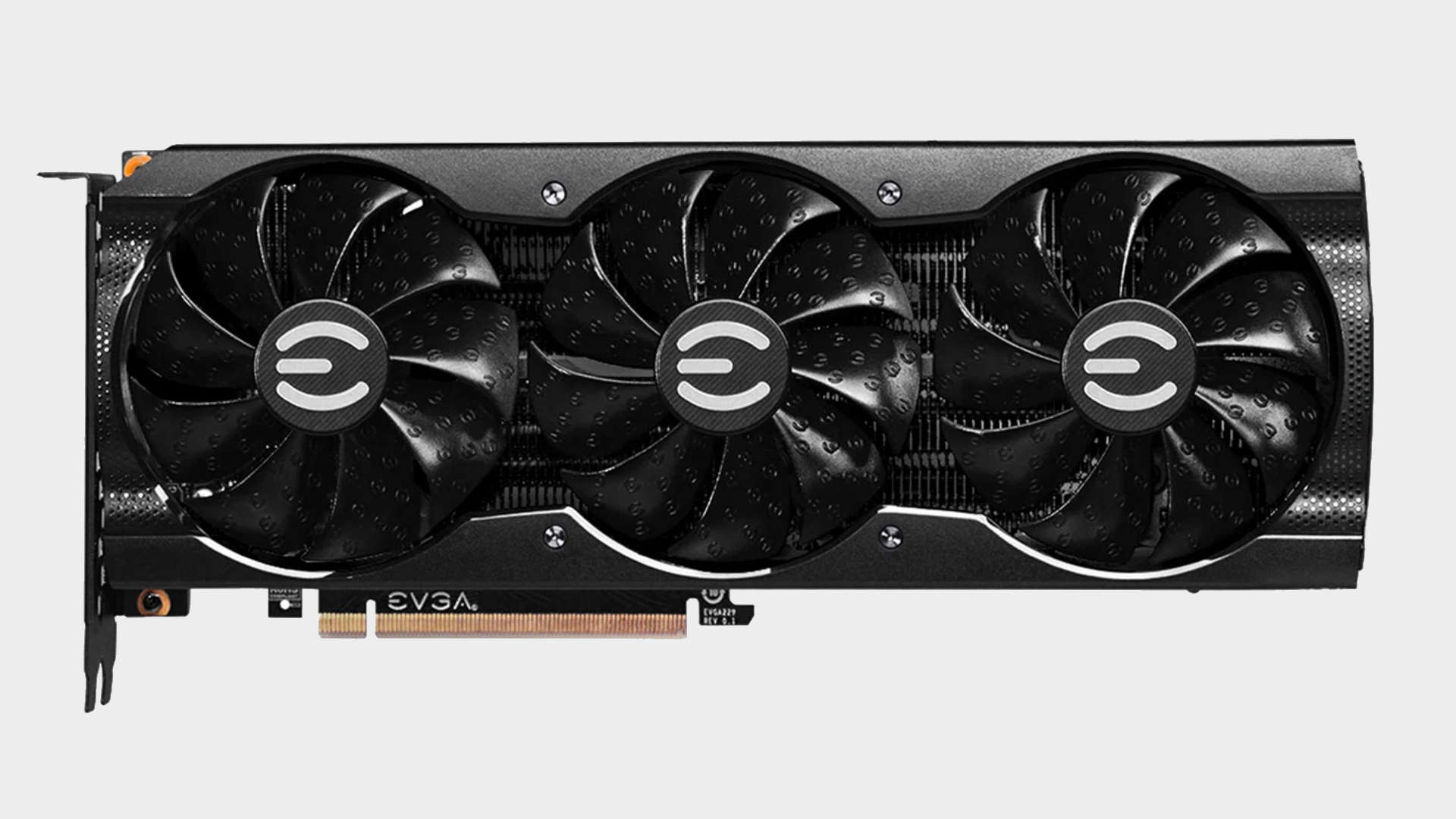Nvidia CEO says market 'will be served well after EVGA' but it was a 'great partner'
A diplomatic comment from Nvidia's CEO on one of its largest partners dropping out of the GPU game.

Just days prior to Nvidia's RTX 40-series graphics card broadcast, one of the company's largest and most prolific AIB partners, EVGA, announced it would no longer manufacture its graphics cards. The news came as quite a shock to PC builders, to say the least, as EVGA had made quite a name for itself in the GPU market.
In a recent Q&A with Nvidia's CEO Jensen Huang, shortly after the company's GTC live stream, I asked the CEO what were his thoughts on EVGA's departure from that side of the business.
"Andrew [Han] wanted to wind down the business. And he's wanted to do that for a couple of years. Andrew and EVGA are great partners, and were great partners, and I'm sad to see them leave the market. But, you know, he's got other plans and he's been thinking about it for several years.
"The market has a lot of great players. And it'll be served well after EVGA. But we'll always miss them. I'll always miss them. And they were an important part of our history, and Andrew is a great friend. And, you know, I think that it was just time for him to go do something else."
EVGA's business is, to a large extent, driven by graphics card sales—reportedly around 80% of its business to date is graphics cards alone. Reportedly it has no plans to roll out layoffs as a part of its change in direction, however, which is surprising, to say the least. Hopefully, it can and will stick to that.
According to initial reports on EVGA's decision, from Gamers Nexus and Jon Peddie, EVGA cited thin margins for GPUs and unfair treatment as reasons why it will no longer create new graphics cards. According to both, Nvidia's decision to undercut EVGA with its own Founders Edition cards left the company frustrated and feeling like its relationship had soured.
Nvidia released a statement immediately following the event that is similar in tone to Huang's later comments.
The biggest gaming news, reviews and hardware deals
Keep up to date with the most important stories and the best deals, as picked by the PC Gamer team.

Best CPU for gaming: The top chips from Intel and AMD
Best gaming motherboard: The right boards
Best graphics card: Your perfect pixel-pusher awaits
Best SSD for gaming: Get into the game ahead of the rest
"We've had a great partnership with EVGA over the years and will continue to support them on our current generation of products," said an Nvidia representative. "We wish Andrew and our friends at EVGA all the best."
We can assume that any allocation of RTX 40-series GPUs intended for EVGA, such as those for the RTX 4090 launching soon, will instead be divided among Nvidia's remaining AIBs, including Asus, MSI, Gigabyte, Zotac, and others. Though it may well be that EVGA never had any allocated to begin with, as this decision may have been a long time in the making.
I doubt we'll feel any lull as a result of EVGA's departure. However, we will be at a loss for EVGA's designs, many of which were impressive. Not the least bit its Kingpin designs. Overclocker Vince "Kingpin" Lucido, who has long worked with EVGA on extreme graphics cards, put out a statement thanking fans for the years working with EVGA, and noted that this isn't necessarily the end for Kingpin designs, though didn't specify any further information. Perhaps that's more of an open offer to any interested parties rather than confirmation of an agreement already in place so soon after EVGA has left the party.
I'll also miss EVGA's queue system, which was one of the better ways to politely queue up for an in-demand graphics card these past few years. Though hopefully, we won't be in such dire need for this sort of system with the next-gen now that ethereum mining has gone away.

Jacob earned his first byline writing for his own tech blog. From there, he graduated to professionally breaking things as hardware writer at PCGamesN, and would go on to run the team as hardware editor. He joined PC Gamer's top staff as senior hardware editor before becoming managing editor of the hardware team, and you'll now find him reporting on the latest developments in the technology and gaming industries and testing the newest PC components.

